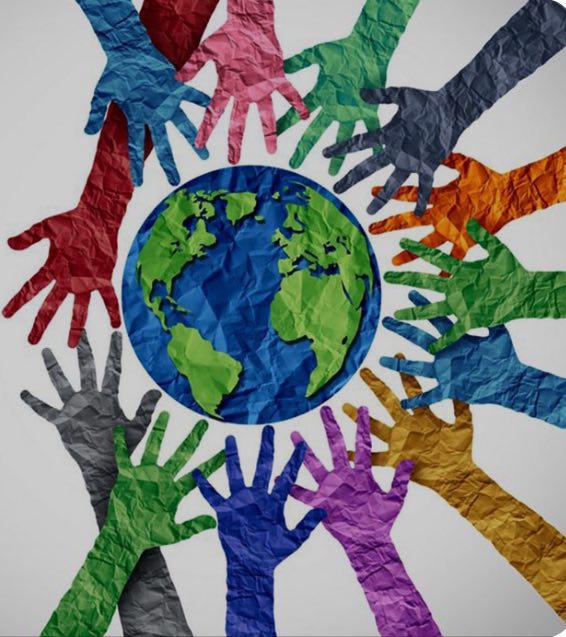Maximum Violation of Citizen Rights
Maximum Violation of Citizen Rights
Issuing orders such as blocking national ID codes, issuing travel bans, restricting citizens’ interactions, and other orders that limit legitimate freedoms of citizens are against the law. Those who order and execute such rulings are committing a crime or disciplinary offense and deserve punishment.
Article 22 of the Constitution, in establishing a general rule, emphasizes human dignity and states that the life, property, rights, and reputation of individuals are protected from violation unless the law permits otherwise.
The fact that the highest law of the country establishes the principle of non-violation of the fundamental rights of the nation as a general rule indicates that if a person commits an act that warrants imposing restrictions or penalties, it must be done according to the law. The procedures for implementing and executing such actions are explicitly outlined in the law, and even in specific regulations such as the Criminal Procedure Law, the methods of imposing penalties are detailed step by step.
In parallel with this legal obligation, according to the Criminal Procedure Code, summoning citizens to the prosecutor’s office requires sufficient evidence.
According to Article 168 of the Criminal Procedure Code, an investigator is not allowed to summon anyone as a suspect without sufficient evidence. Violating this legal obligation will result in a disciplinary conviction of grade 4, reprimand, and deduction from the judicial officer’s salary.
The Iranian Constitution, like the Universal Declaration of Human Rights, the International Covenant on Civil and Political Rights, the American Convention on Human Rights 1969, or the European Convention on Human Rights 1950, in explaining and expanding human rights, enumerates these rights in Articles 23, 25, 32, 33, 34, 36, 38, and 39, so that rulers and law enforcers know that imposing and executing any punishment is justified and supported by law only when human dignity is not compromised.
The right to citizen immunity is the same basic and primary rights that today are referred to as human dignity and are agreed upon by most political systems. According to legal provisions, no person, even the highest judicial or executive authority in the country, has the right to violate citizens’ rights. Therefore, imposing restrictions under titles like work bans or service bans is a clear violation of citizen rights, and if the person in question is under suspicion, restricting their fundamental rights equates to violating the defendant’s defensive rights.
The Citizen Rights Charter also stipulates under the section titled ‘Right to Freedom and Citizen Security’ that the individual and public freedoms of citizens are inviolable, and no citizen can be deprived of these freedoms.
Limiting these freedoms is only permissible to the extent necessary and according to the law.
Every citizen has the right to personal, financial, reputational, legal, judicial, occupational, social security, and similar rights. No authority should violate or threaten these rights and freedoms under the pretext of ensuring security.
Illegal actions in the name of ensuring public security, especially violations of people’s privacy, are prohibited. In addition to the Citizen Rights Charter, the Judicial Security Document also defines the instances of people’s fundamental rights and all judicial and law enforcement agencies are obliged to follow these regulations.
Article 19 of this regulation, titled ‘Presumption of Non-Criminal Responsibility,’ states the principle of innocence and that no one is considered a criminal unless their crime is proven in competent authorities. Article 24, regarding the prohibition of illegal detention, states that everyone has the right to life, freedom, and security under judicial security.
No one can be detained or forced into exile or mandatory residence except by the order and procedure specified by law. Article 20 prohibits absolute torture and degrading treatment against suspects, defendants, witnesses, and informants, and stipulates that the accused and informant must not be subjected to inhuman or degrading treatment. Any physical or mental torture, coercion to confess or testify, verbal or practical insults, verbal or physical violence, sexual harassment, or violation of the dignity and reputation of the aforementioned individuals, as well as any threats, pressure, and restrictions on the individual or their family and relatives, are absolutely prohibited in any circumstances and the results obtained from them are not admissible in judicial authorities. Such behavior towards imprisoned or exiled individuals beyond the issued judicial ruling is prohibited and punishable.
Additionally, the head of the judiciary, through a directive, has prohibited all judges from blocking national ID codes and, in other words, banning services to convicts and suspects. According to the aforementioned regulations, it is clear and evident that firstly, imposing any punishment and restriction on the human rights of citizens is subject to the legal procedures specified in the Criminal Procedure Code. Secondly, assuming an accusation is directed and the evidence is sufficient, no judicial authority has the right to deprive such a citizen of the fundamental rights specified in the mentioned regulations.
Therefore, issuing orders such as blocking national ID codes, issuing travel bans, restricting citizens’ interactions, and other orders that limit legitimate freedoms of citizens are against the law. Those who order and execute such rulings are committing a crime or disciplinary offense and deserve punishment.

